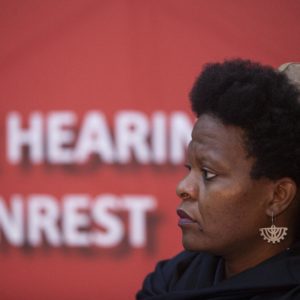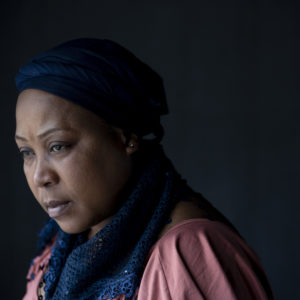Commission exposes how the police failed in Durban
The national police commissioner said there were not enough officers to respond effectively to the July riots while victims are left dealing with indelible scars on their psyches and lives.
Author:
26 November 2021

The second week of hearings held by the South African Human Rights Commission (SAHRC) into the July riots in KwaZulu-Natal and Gauteng have brought to light devastating evidence about apparent lapses in law enforcement as well as the role of private security companies.
On 25 November, day eight of the hearings, Glen Naidoo, the former boss of security firm KZN VIP Security Services, detailed his involvement in erecting barricades in Phoenix, northwest of Durban, and admitted that he had encouraged community watch groups to mobilise to prevent the township from being “attacked and looted”.
Naidoo recorded and shared a video message on 12 July calling for “civil defence”. In it, he addressed residents and urged them to “do whatever it takes to protect Phoenix”. He added: “I don’t care who you are, whether you’re a gangster, drug dealer or law enforcement… You must come out in your numbers and we will support you.”
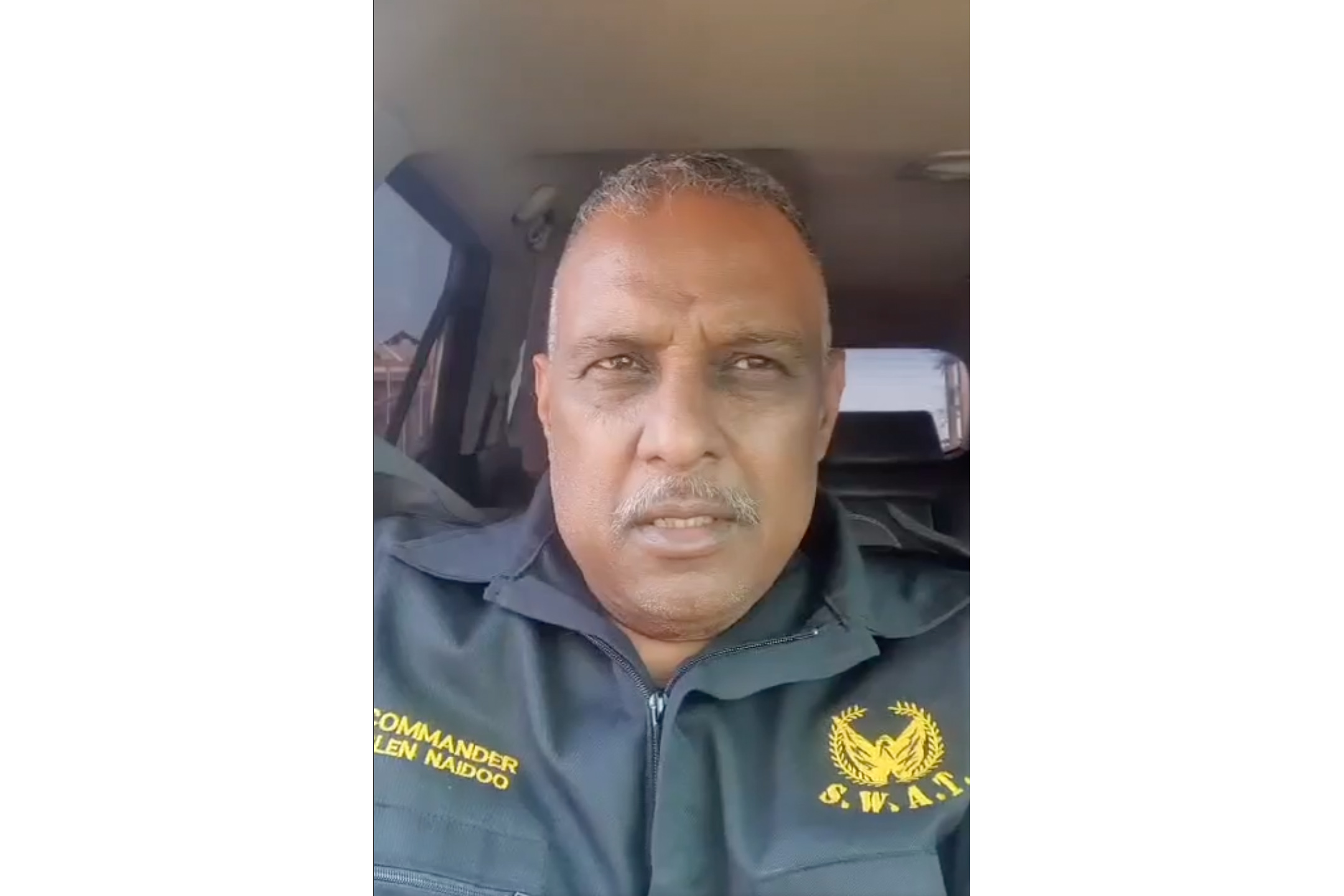
In another video also shared on his Facebook page, Naidoo commended the community watch groups that had formed following his call. He said about 20 000 people in the streets were “ready to protect Phoenix” and that “we … have a serious problem with the crimes of violence and shooting of innocent people by thugs… We will deal with you.”
Describing the events of July at the hearing, Naidoo said private security specialists from other parts of the country were flown to Durban and other parts of the province because the “police did not have enough manpower”.
Naidoo, a former policeman who resigned from his family’s security company in the wake of the riots, claims that it came to the aid of the police in the area, even providing them with ammunition. He also said the barricades helped bring the violence to an end. “It was like a war and in a war there are always casualties. Unfortunately, people died, but the situation could have been worse. A lot more people would have died.”
Related article:
Explaining why private security personnel at the barricades were often armed with handguns, shotguns and rifles, he said: “People had to defend themselves and protect Phoenix from being attacked and looted.”
Probed about the deaths of 33 Africans in Phoenix, Naidoo denied any knowledge of them, saying he became aware of the violence and killings only a month after the riots. While he admitted that murders and attacks by some people manning the barricades were mainly aimed at Africans, he remained adamant that the roadblocks did not aim to stop them exclusively.
“The racial profiling only came after what was seen on television… It was an automatic assumption and the defence mechanisms put in place would have applied even if it was white people that we saw as the majority of looters on TV. This is not a race thing, this is about criminality. There was a lot of chaos and, yes, lawlessness took over,” said Naidoo.
A life changed forever
Earlier in the week, on 23 November, the commission heard of the terror felt by victims of the violence that gripped KwaZulu-Natal. Bongani Mkhize, 46, described how he was shot by private security officers on 14 July near Wentworth when he was heading back from a fuel station to his home in Umlazi, south of Durban.
He said he was stopped by a vehicle, allegedly from Crown Security, along the M4. Two men alighted and demanded to search his car. Soon after, an unmarked vehicle arrived and was parked behind his car. Three men got out and started shooting at him.
Mkhize said he fled on foot towards the N2 highway followed by the security officers, who continued to shoot at him. “One bullet hit my back and went through my stomach. Then I suddenly felt heavy cramps and decided to hide behind the steel barricades on the freeway. I crawled my way across the freeway … to seek safety, and I was then able to call my son for help.”
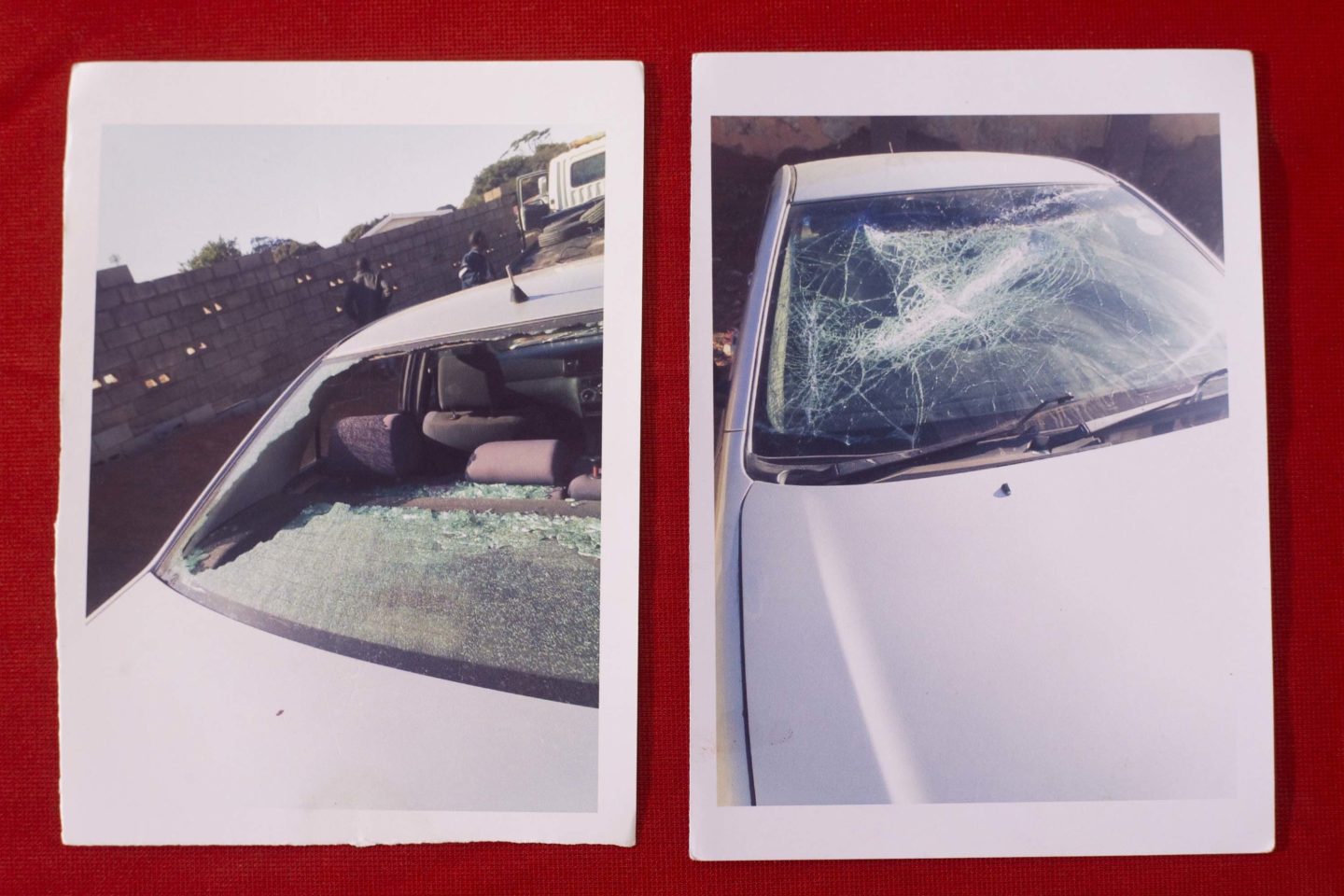
His son rescued him, accompanied by metro police officers, who took him to Prince Mshiyeni Memorial Hospital in Umlazi. Mkhize shared harrowing images of his operation and described how he received little attention owing to the hospital being very busy that night.
The father of three said it has taken some time to be comfortable with living with a stoma bag for bowel movements following his surgery. He cannot work as a bus driver for at least another six months and survives on half his salary.
Unforgettable horror
Mbuso Xaba, 38, from KwaMashu, north of Durban, said he felt Africans were racially profiled and the police failed to help him. He said his mental health has been negatively affected by the ordeal he and three friends, aged between 18 and 20, went through.
Describing their day of terror on 12 July, Xaba detailed a series of violent events that took place on the Phoenix Highway. Xaba said he and his friends had been on their way to the airport to fetch his partner when he drove into Phoenix in search of fuel because none was available in his area that day owing to the riots.
Xaba said they were stopped by at least three groups of about 50 people each, including children, who verbally attacked them using racial slurs, damaged his car and physically assaulted them. He said they were allowed to get past the first group near the Shell garage in Phoenix after explaining to the “ring leader” that they were headed to the airport. But soon after, a second group armed with “axes, shotguns and baseball bats, and masked faces” began stoning his car and assaulted the three youngsters, who were seated in the back of his car.
Xaba said he was rescued by the ring leader, who let him go to the garage. He managed to drive away from this group. “At that time, I had no idea where the three boys were. It broke my heart to leave them behind because even though I wasn’t sure I’d survive that day, I kept asking myself what would I tell their parents when I get home? I felt responsible for what had happened to them and I didn’t know if they were alive or not.”
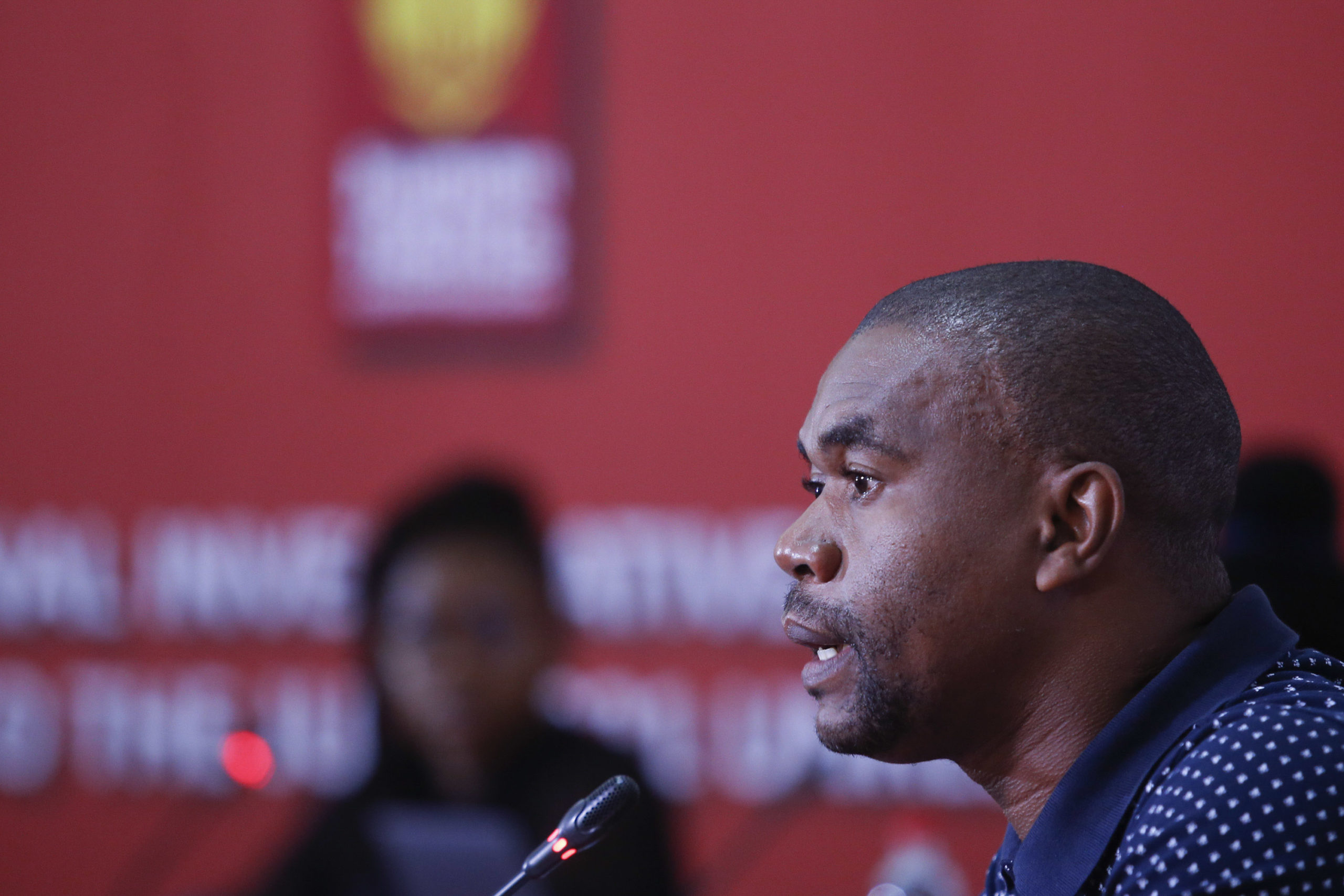
Describing the horrific scenes and burning vehicles he witnessed along the Phoenix Highway, Zaba detailed the last attack. He said he was met by another mob about 5km further. Armed men blocked and hit his car with stones and weapons, accusing him of looting.
“The horror was just endless. I don’t know how I survived. Immediately after the name-calling and banging on my car, I was asked to step out and this time they told me to sit in front of the car. While seated, an elderly lady emerged who was dragged and also told to sit next to me.
“She had open wounds and scars all over her face and arms. She was bleeding heavily and my heart just sank when I saw her. She was carrying a small plastic bag and told me that she was coming back from work when she was hacked and beaten up on the road.
“As we both sat down, I realised they were going to kill us. One particular guy who came and shot the tyres of my car kept on asking why we were still alive and prompted the others to shoot the both of us.”
Rescued at last
Xaba said at that moment a private security vehicle arrived with two African men, who pleaded with the group to cease the attacks. Soon after, an unmarked police van also arrived and helped him drive away. “The private security men took the elderly woman because she was going in a different direction. The police drove me to safety and then showed me an alternative route to get home through Bhambayi.
“When I got there, a few cars had also been in Phoenix. The damaged cars were parked in the middle of the road. There was a man I noticed who was crying, seated next to his car. His friend was lying on the ground, dead. He had a gunshot [wound] in his chest and had died on the way.”
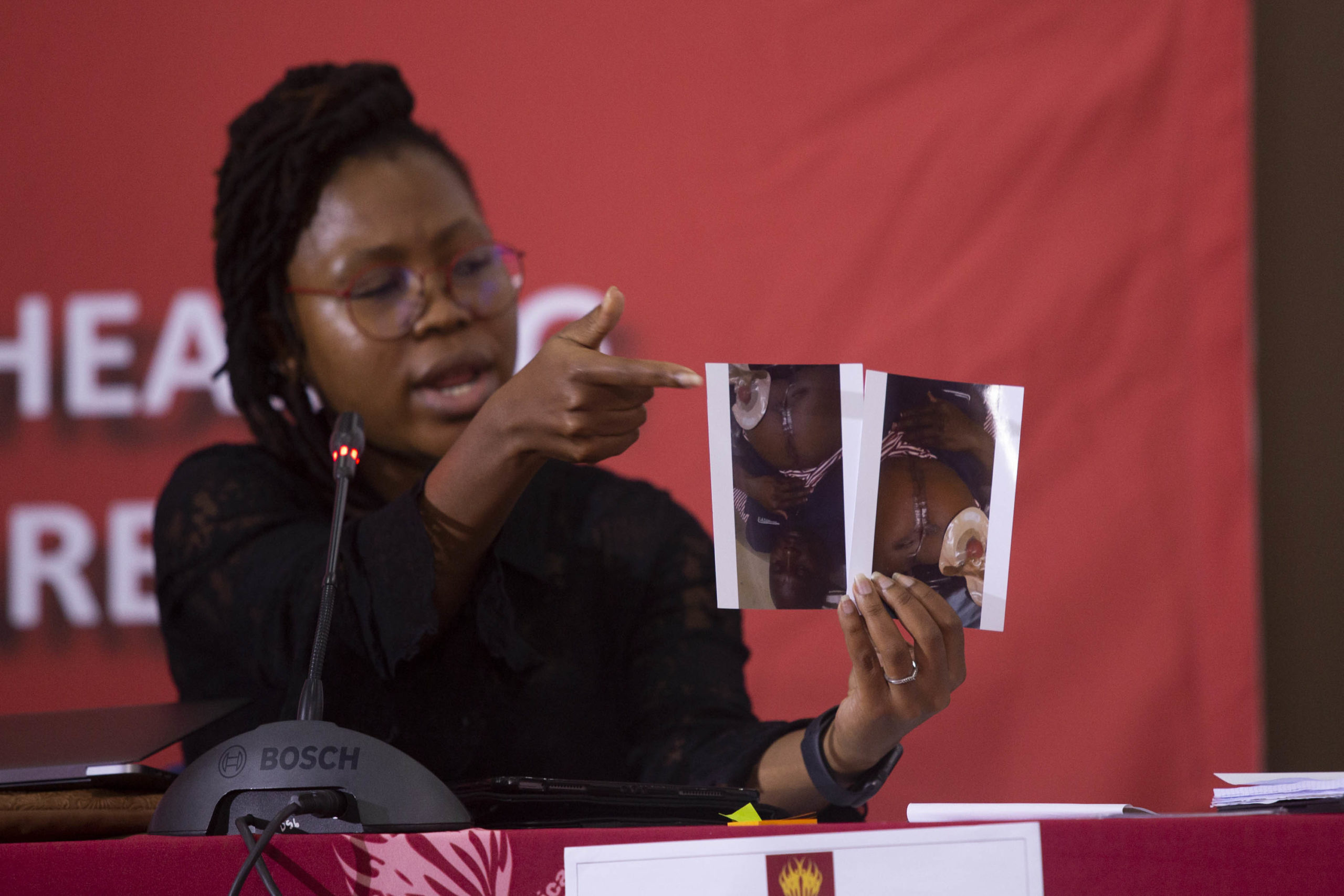
After witnessing this, Xaba decided to go to his uncle’s home in Section A, KwaMashu. He recovered his cellphone from under his car seat and was able to communicate with a family member of one of the boys who were with him during the attack in Phoenix. He was relieved to hear that they had all made it home safely.
Xaba said he never went to seek medical attention owing to the backlog at the local clinic during that week. He opened a case on 15 July at the airport police station.
He said he still struggles to cope with the trauma he suffered. “I’m failing to understand what it is that Black people did to Indian people for them to hate us this much. There was no mercy from Indian people that day. They seemed satisfied and saw it justified to harm and kill Black people. It was well organised and anyone who was able to escape those roadblocks was just lucky.”
On 22 November, national police commissioner General Khehla Sitole gave virtual testimony to the commission on the role of the South African Police Service and the investigations into the violence. Sitole said the police did not have enough officers to effectively respond to the riots.
Related article:
Sitole was unable to give the commission the number of deaths recorded as a result of the riots.
He said a number of investigations were under way. However, Minister of Police Bheki Cele told Parliament that more than 300 people died during the riots.
Former defence minister Nosiviwe Mapisa-Nqakula also testified at the hearing. She said the South African National Defence Force did not receive cooperation from provincial police commissioner Lieutenant General Nhlanhla Mkhwanazi, who was disrespectful and hostile towards the team of ministers and senior officials of the ministries of defence and state security at a meeting in Durban.

